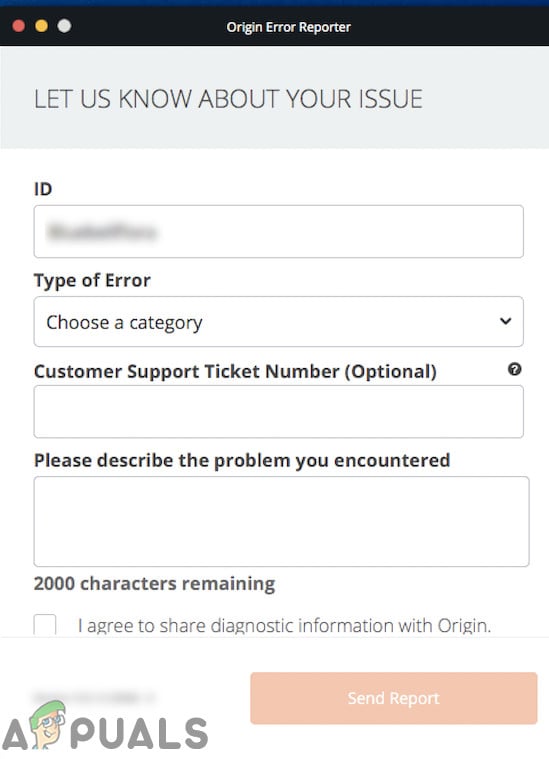How to Fix Error Syncing Cloud Storage Data in Origin?
Syncing issues with Origin cloud storage data error may occur due to outdated Windows and system drivers, DNS issues, or corrupt installation of the game/Origin client. This error can happen with any game in the Origin client with the message “Error syncing Cloud Storage data, Your latest cloud storage data may not be available.” Sometimes, users can click and play by using the Play Anyway button, whereas some users are given the option to Retry Sync.
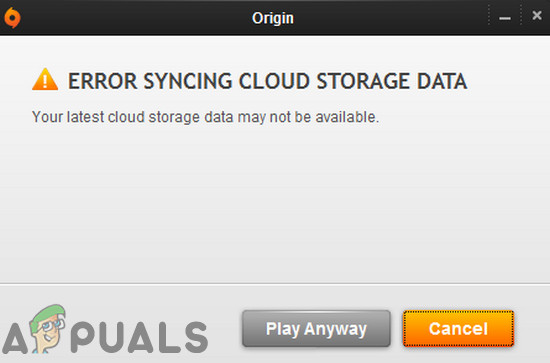
This error is very widespread in Origin clients and is often caused because of slight issues in configurations of the applications or system modules such as the network. Here are some common workarounds to try before trying more technical solutions:
- Relaunch the Origin client.
- Make sure that you have an active EA account.
- Restart your system and networking equipment (router etc.).
- Make sure you have a working and stable internet connection. It will be a good idea to use a wired connection as compared to Wi-Fi.
- Check @EAHelp on Twitter for any servers’ outage. You can also check servers’ status through Down Detector.
- Make sure you are using the updated version of the Origin client.
Solution 1: Switch the Origin Client to Offline and Then Back Online
The cloud storage syncing error could be caused by a temporary communication glitch between your Origin client and the servers. In that case, switching the Origin client to offline and then reverting to online may solve the problem.
- Launch the Origin client.
- Then in the Origin menu, click on Go Offline.
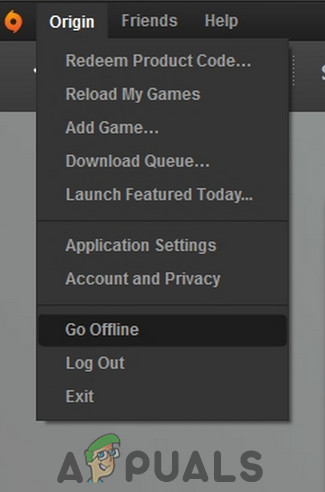
Go Offline in the Origin Client - Now revert to the Online status and check if it is working fine now.
Solution 2: Run the Origin Client as Administrator
To perform certain operations, your Origin client requires access to certain system resources. If any of these resources are protected by admin privileges, and your gaming client does not have them, then it can result in the current syncing problem. In that case, launching the Origin client with the admin privileges may solve the problem.
- Exit the Origin client and kill all its related processes through the Task Manager.
- On your desktop, right-click on the Origin client icon and then click on Run as Administrator.
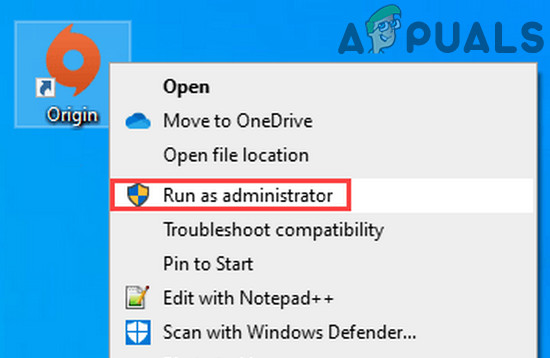
Run Origin as Administrator - Click on Yes, if UAC prompts.
- Now launch the problematic game and check if it is working fine.
Solution 3: Disable Your Antivirus/Firewall
Your antivirus and firewall applications are your most trusted partners in the tedious task of keeping your system and data safe. But these applications can block access to certain system and network resources and thus cause the issue under discussion. In that case, either add an exception for the game/Origin client in the antivirus/firewall settings or temporarily disable them.
Warning: Proceed at your own risk, as disabling your antivirus/firewall can make your system more vulnerable to different threats like viruses, malware, etc.
- Exit the game and Origin client.
- Disable your antivirus.
- Turn your firewall.
- Now launch the Origin client and game to check if it is clear of the cloud storage sync error.
- If it is, then add an exception for the game/Origin client in the settings of the antivirus/firewall.
- Afterward, do not forget to turn back on your antivirus/firewall applications.
Solution 4: Change Your Network
ISPs use different protocols and techniques to control traffic and secure their users. But during this process, ISPs sometimes block access to a vital network resource for the game/Origin client and thus cause the issue at hand. To rule that out, change your network temporarily.
- Change your network. If no other network is available, then you can use a VPN client or mobile hotspot.
- Now launch the game and check if it is clear of the cloud storage syncing error.
Solution 5: Update Windows and System Drivers
Outdated Windows and system drivers make your system inclined to many issues. The same could be the cause of the current syncing error. Here, updating Windows and system drivers (especially the Graphics driver) may solve the problem.
- Press Windows key and type Updates. Then in the search results displayed, click on Check for Updates.
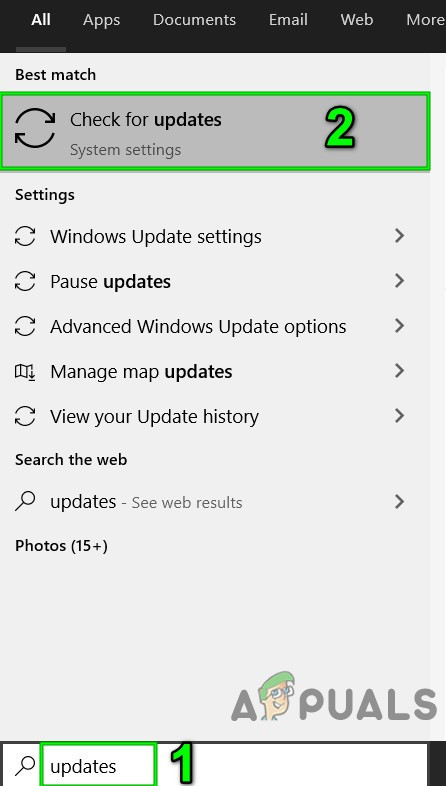
Check For Updates in Windows Search - Now click on the Check for Updates button in the update window.
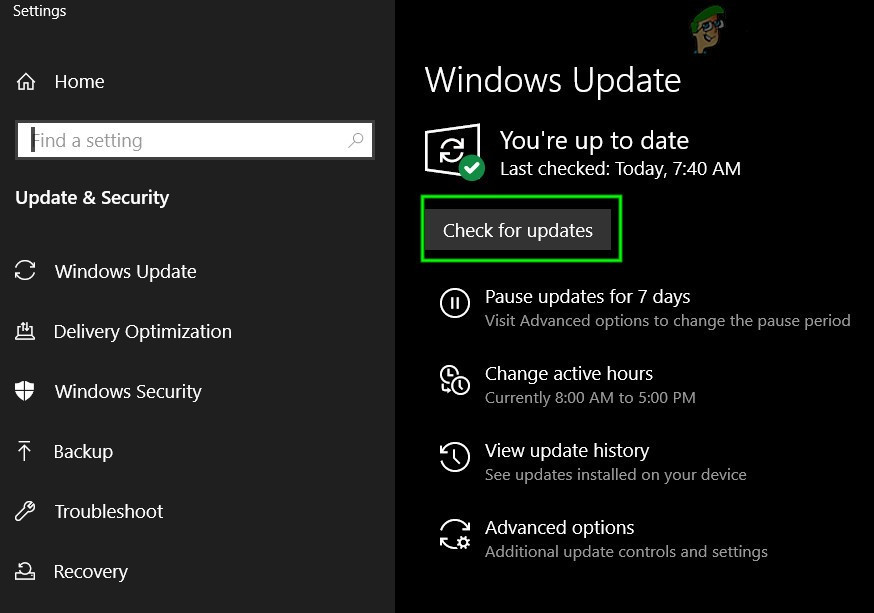
Check for Updates in Windows Update - If there are any updates available, download and install all of them.
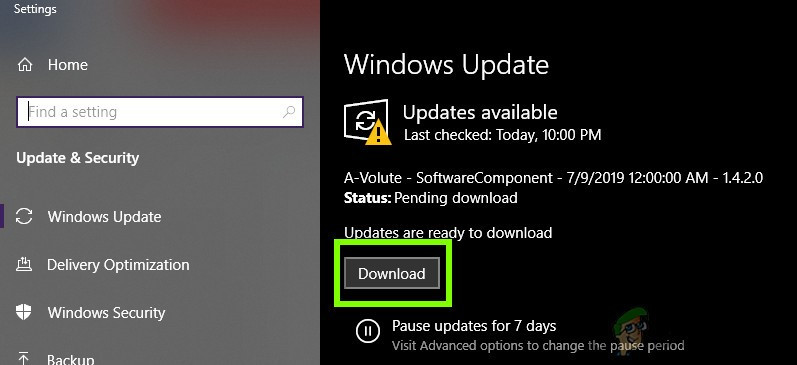
Check For Updates in Settings - Now download the Windows Update Assistant.
- Then launch the downloaded file and follow the on-screen prompts to complete the update process.
- It will be a good idea to check the manufacturer’s website for updates.
- After completion of the update process, launch the Origin client/game and check if it is working fine.
Solution 6: Delete the Temp Folder
Certain launch configurations and cached data for all the applications are stored in the temp folder. The temp folder helps the OS in boosting up things. If the contents of the temp folder are corrupted or conflicting entries are present, then it can result in the cloud storage syncing error. In that case, deleting the contents of the temp folder may solve the problem. Do not worry, your data will be unharmed and contents will be automatically recreated over time.
- Exit the Origin client/game and kill all its running processes through the Task Manager.
- Launch the Run command box by pressing Windows+R.
- Then in the Run Command box, type %temp% and press enter.
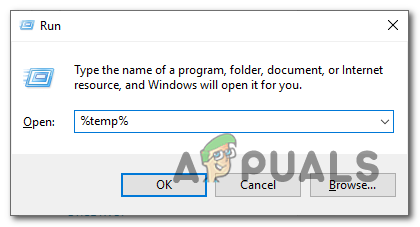
Accessing the temp folder - Now select and delete all the contents of the temp folder.
- Then relaunch the Origin client/game and check if it is operating fine.
Solution 7: Clean Boot Your System
The cloud storage syncing error can be caused by certain applications that are at conflict with the operation of the game/Origin client. The problematic application can be found by clean booting your system.
- Clean boot your system.
- Now launch the Origin client/game with admin privileges and check if it is working fine.
- If it is, then try to find out the problematic application by adding on one application/driver at a time to clean boot selection and check.
Solution 8: Clear the Origin’s Cache
Nearly all applications store certain data as a cache to speed up loading time and better user experience. The same is the case with the Origin client. If the Origin’s cache is corrupt, then it can cause the syncing error under discussion. In that case, clearing the cache (except the LocalContent) may solve the problem.
- Quit Origin client/game and kill all its running processes through the Task Manager.
- Launch the Run command box by pressing Windows+R keys.
- Now type the following command in the Run command box,
%ProgramData%
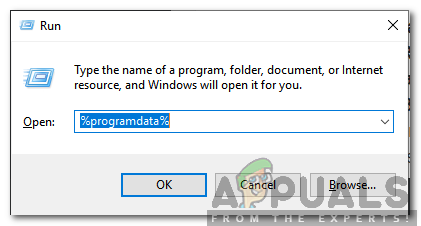
Typing in “%Programdata% and pressing “Enter” and press Enter.
- In the ProgramData folder, now find and open the Origin folder.
- Now find the LocalContent This folder should not be deleted.
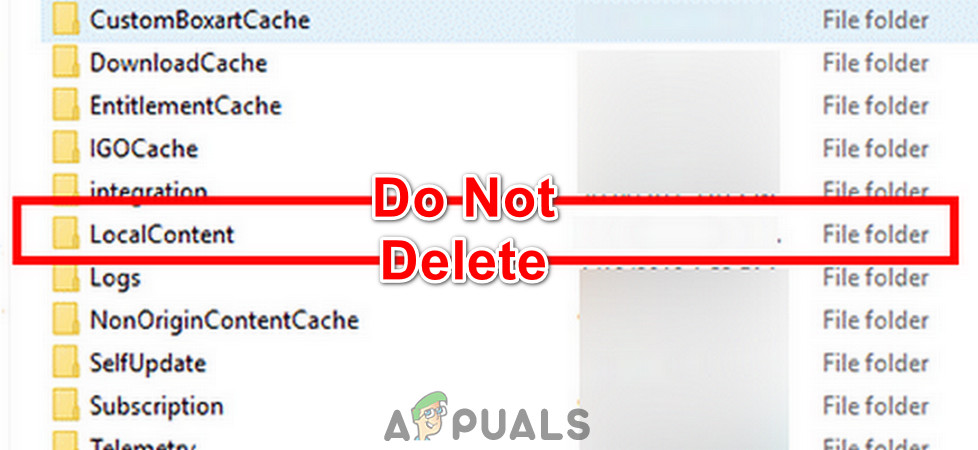
Do Not Delete LocalContent Folder - Then delete all the contents of the Origin folder (except LocalContent folder).
- Again, launch the Run command box by pressing Windows+R.
- Now type the following command in the Run command box,
%AppData%

%appdata% as a Run command and press Enter.
- Now in the Roaming folder, find and delete the Origin folder.
- In the address bar of the Roaming folder, click on the word AppData.
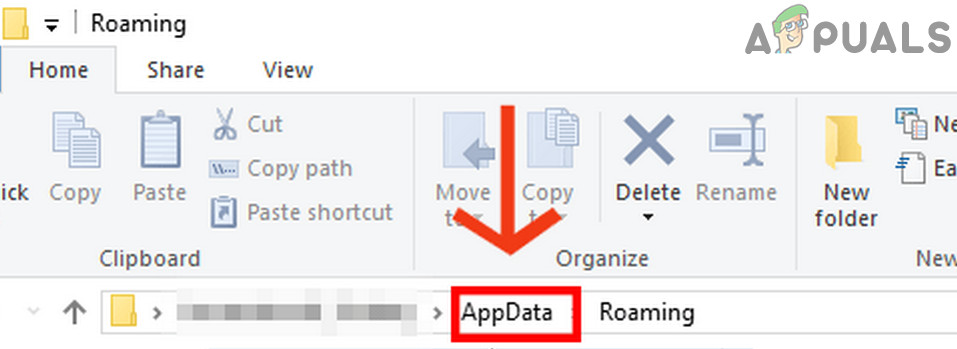
Click on AppData - Now in the AppData folder, find and open the Local folder.
- Then in the Local folder, find and delete the Origin folder.
- Now restart your system.
- After your system has powered on, launch the Origin client/game and check if it is working fine.
Solution 9: Flush the DNS Cache
The temporary database of all recent internet activity is maintained by your system in the form of the DNS cache. Your system uses this database to load a website visited recently. It saves time and resources as compared to lookup the website through the DNS server. If this cache has conflicting entries or is corrupted, then it can cause communication issues for the Origin client and thus result in the current syncing error. In that case, flushing the DNS cache and renewing the IP address may solve the problem.
- Exit the Origin client/game and kill all its running processes through the Task Manager.
- Press Windows key and type Command Prompt. Then in the search results shown, right-click on the Command Prompt and then in the sub-menu, click on Run as Administrator.
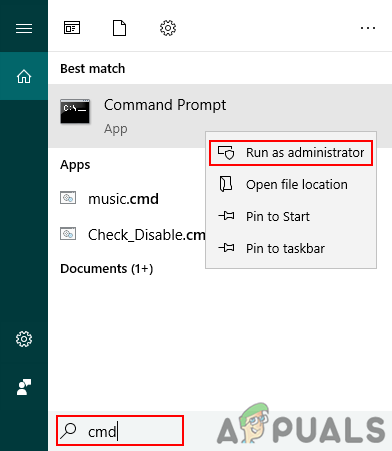
Opening elevated command prompt - Type the following commands in the command prompt and press the Enter button after each command.
ipconfig /flushdns ipconfig /release ipconfig /renew
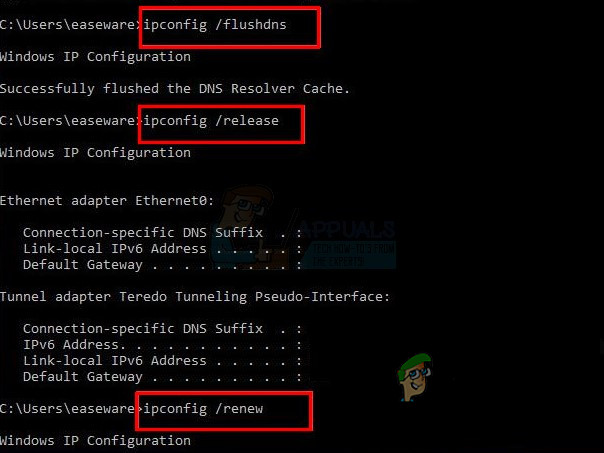
Run IPConfig in Command Prompt - Now, restart your PC.
- Then launch the Origin client/game and check if it is clear of the syncing error.
Solution 10: Change the DNS Server
The Domain Name System (DNS) converts website names into numerical IP addresses. For this purpose, DNS looks up the information on a system of DNS servers over the Internet. If your DNS server is having issues in resolving the website names, then it can result in the cloud storage syncing error. In that case, changing your DNS server may solve the problem.
- Exit the Origin client/game and kill all its related processes through the Task Manager.
- Change Your DNS by following the instructions on How to Change DNS in Windows 10.
- For Internet Protocol Version 6 (TCP/IPv6), use the following DNS server addresses:
Preferred DNS server: 2001:4860:4860::8888 Alternate DNS server: 2001:4860:4860::8844
- Then launch the Origin client/game and check if it is clear of the cloud storage error.
Solution 11: Reset the Hosts File
The hosts file is used by Windows to map the IP address to a domain. It can be used to block access to the domains. If a website is mapped in the host file, then the DNS server will not be queried for domain name resolution. If entries regarding the Origin client are wrongly configured in the host files, then it can cause the current cloud storage syncing error. In that case, resetting the Hosts file to its defaults may solve the problem. You will need admin privileges to edit the Hosts file.
- Press Windows key and type Notepad. Then in the search results shown, right-click on Notepad and then click on Run as Administrator.
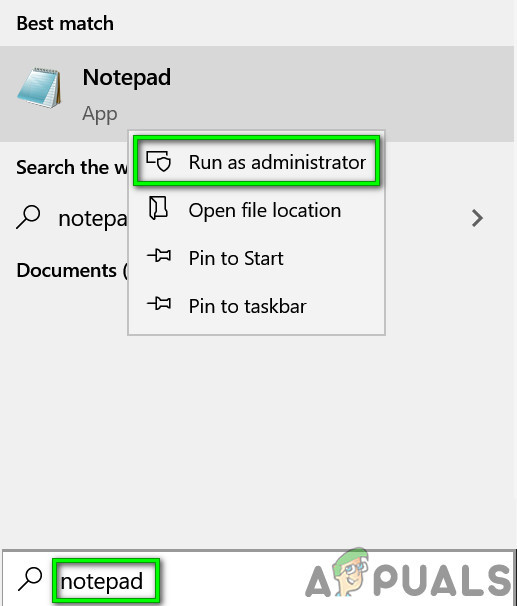
Open Notepad As Administrator - If UAC prompts, click on OK.
- On the menu bar of the Notepad, click on File and then in the menu displayed, click on Open.
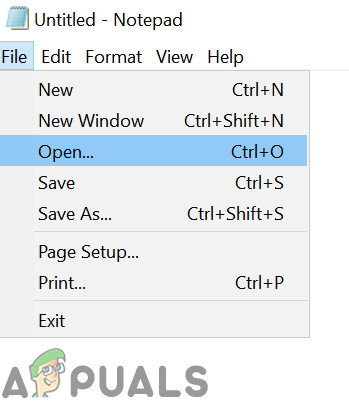
Open File in Notepad - Now copy and paste the following path into the address bar”
%WinDir%\System32\Drivers\Etc
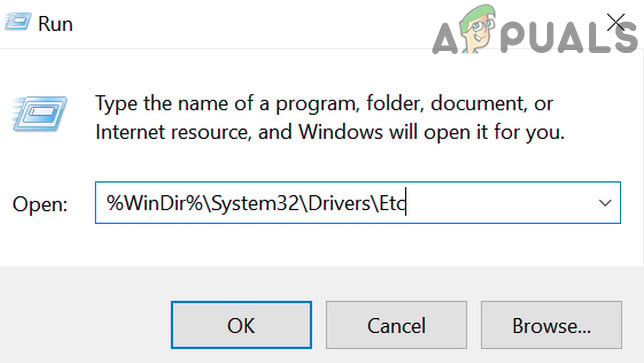
Open Folder of Hosts File then press the Enter button.
- Now change the file type from Text Documents (*.txt) to All Files (*.*).
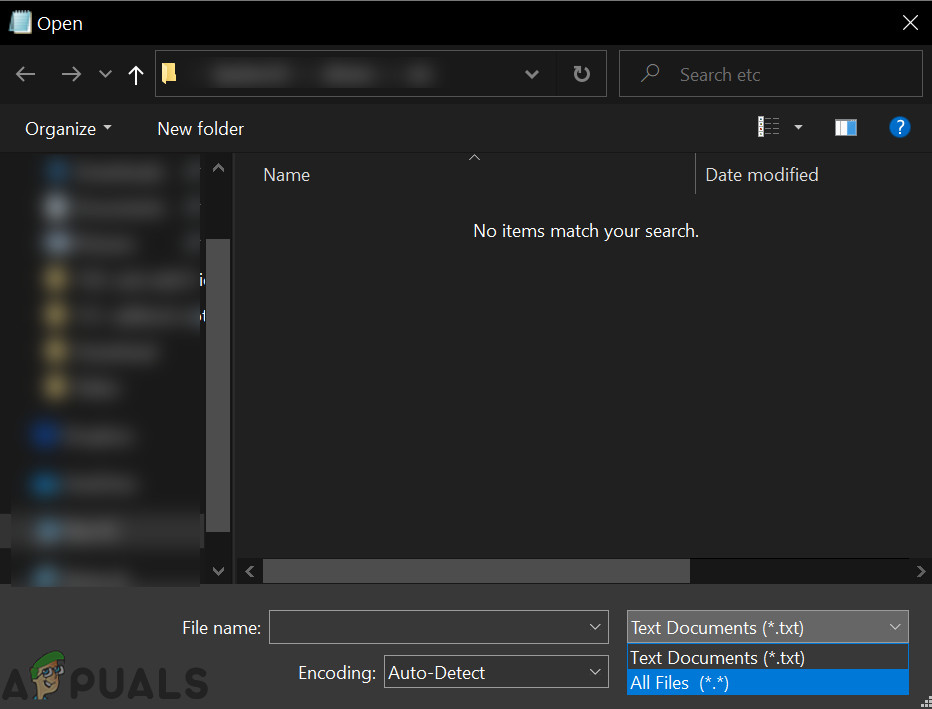
Change From Text Document to All Files - Then select the Hosts file and click on Open.
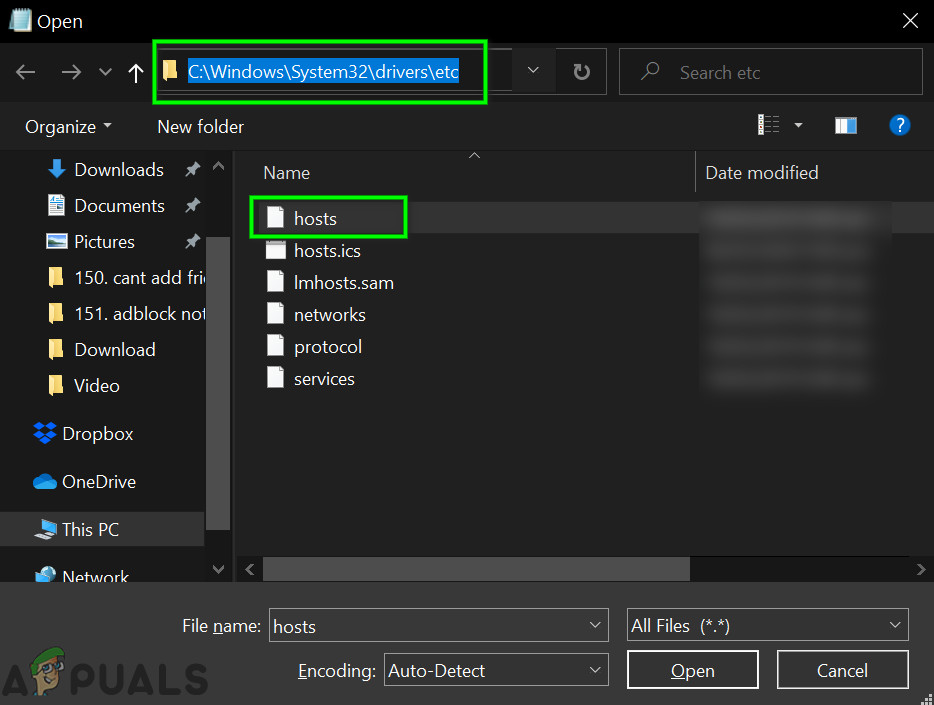
Open Hosts File - Now select and delete all the contents of the Hosts file.
- Then copy and paste the following text into the Hosts file (This is Microsoft’s default Hosts file configuration):
# Copyright (c) 1993-2009 Microsoft Corp. # # This is a sample HOSTS file used by Microsoft TCP/IP for Windows. # # This file contains the mappings of IP addresses to hostnames. Each # entry should be kept on an individual line. The IP address should # be placed in the first column followed by the corresponding host name. # The IP address and the host name should be separated by at least one # space. # # Additionally, comments (such as these) may be inserted on individual # lines or following the machine name denoted by a '#' symbol. # # For example: # # 102.54.94.97 rhino.acme.com # source server # 38.25.63.10 x.acme.com # x client host # localhost name resolution is handled within DNS itself. # 127.0.0.1 localhost # ::1 localhost
- Now exit the Notepad after saving the changes.
- Then relaunch the Origin client/game and check if it is clear of the syncing error.
Solution 12: Scan and Repair the Game
The cloud storage syncing error could be the result of corrupted/missing game files of the problematic game. In that case, using the Origin’s client built-in Repair functionality may solve the problem.
- Launch the Origin client.
- Then click on My Game Library.
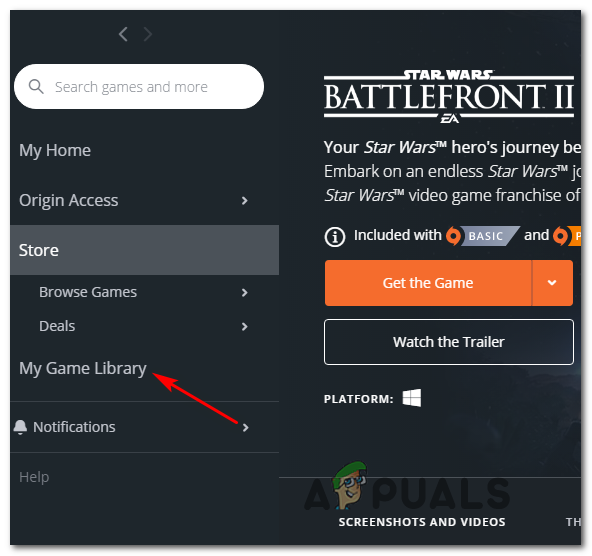
Accessing the My Game Library on Origin - In the Game Library, right-click on the problematic game and click on Repair.
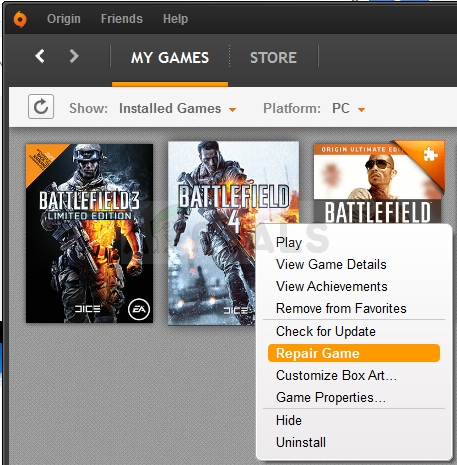
Repairing the Game - After completion of the repairing process, launch the game and check if it is working fine.
Solution 13: Reinstall the Problematic Game and the Origin Client
The cloud storage syncing error could also be caused by the corrupted installation of the problematic game or Origin client. In that case, reinstalling the game and if the problem persists, then reinstalling the Origin client may solve the problem. But before moving on, try to reinstall mods and check if it solves the issue. If not, then proceed with the reinstallation.
- Open the Origin client and navigate to My Games Library.
- Then right-click the on the game icon you want to remove.
- Now in the menu shown, click on Uninstall.
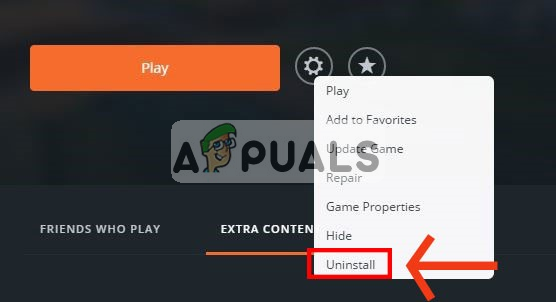
Uninstall the Game - Follow the prompts on the screen to complete the uninstallation process.
- After completion of the uninstallation process, exit the Origin client and restart your system.
- After your system has powered on, launch the Origin client and reinstall the problematic game.
- Then check if it is clear of the cloud storage syncing error.
If not, then you should uninstall the Origin client.
- Uninstall the problematic game as discussed above.
- Press the Windows key and type Control Panel. Then in the search results shown, click on the Control Panel.
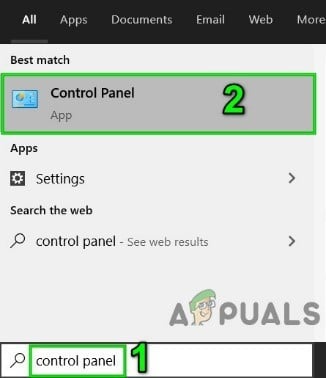
Open Control Panel - Under Programs, click on Uninstall a Program.
- Then in the list of installed applications, find and right-click on the Origin client.
- Now click on Uninstall. A prompt will be shown that EA games may not be functional.
- Click on Uninstall.
- Now follow the prompts on the screen to complete the uninstallation process.
- Once Origin is uninstalled, restart your system.
- Then download the latest version of the Origin client from the official site.
- Now launch the downloaded file with admin privileges and complete the installation of the Origin client.
- Then reinstall the problematic game and check if it is working fine.
Solution 14: Use the Restore Save Option
If nothing has helped you so far, then it is time to overwrite the problematic save of the game with a local backup. Warning: This will overwrite your cloud data which will not be recoverable and all the progress would be lost. Also, the games with the cloud saves can be restored to a local version.
- Launch the Origin client with administrator privileges.
- In the Origin window, go to My Game Library.

Selecting “My Game Library” from the left pane - Now right-click on the problematic game and click on the Game Properties.
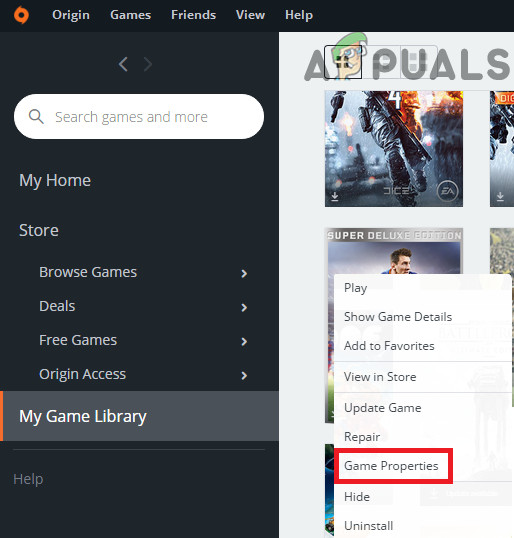
Open Game Properties in Origin - Then click on the Cloud Saves.
- Now click on Restore Save.

Restore Save in Origin - Then a prompt will be shown that “You are now reverting to a locally stored save file…”. Then click OK to proceed with your local save.
Bonus: Use Origin Error Reporter
If you are still having issues with the game, then you should file an error report with Origin by going to “Help —> Origin Error Reporter” and ask them to check your profile (which is most probably corrupted). Describe the issue with complete details and steps performed to troubleshoot the issue.
